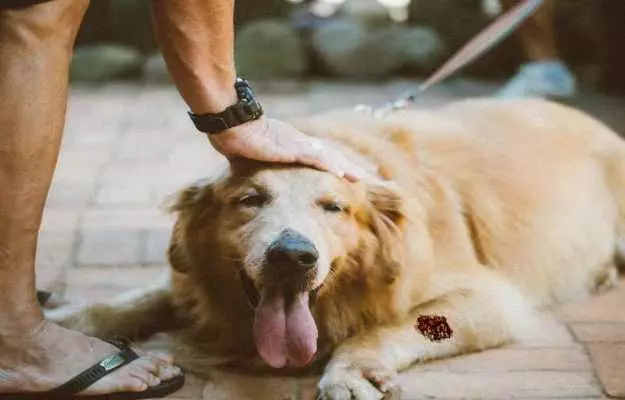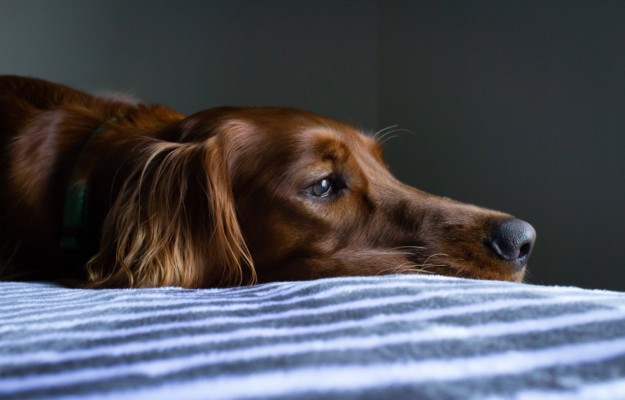Dogs can develop acute moist dermatitis, also known as hot spots or pyotraumatic dermatitis, when they scratch an itch - usually by chewing and licking the area repeatedly.
The itch could be caused by a flea, tick or insect bite, an allergic reaction to food or environmental factors, an ear infection in dogs, anal sac issues and poor grooming. Some orthopaedic issues can also lead to hot spots. Pyoderma, or primary skin infections, can lead to moist dermatitis as well.
When a dog licks or bites a wound, saliva can collect in his or her fur. This moist environment can now attract bacteria, leading to infection. The size of the hot spot can increase quickly if it isn't detected and treated early on. If untreated, the pus can start to crust and get trapped in the fur - this can worsen the infection.
A hot spot typically looks red, inflamed and moist - in some dogs, the wound can look like it is pustulating.
Hot spots occur more commonly in dogs than in cats and are more frequent in the summertime. Dogs with thicker coats are also more likely to get hot spots.
Topical, broad-based antibiotics work well against hot spots. Prognosis is usually good if treatment is started on time and the infection is not allowed to advance.
As always, prevention is the best defence. It is important to maintain high standards of cleanliness and regularly groom your dog. If there is a wound or inflammation, it is good practice to ensure that the area remains dry as moist skin is ideal for bacterial growth.






























